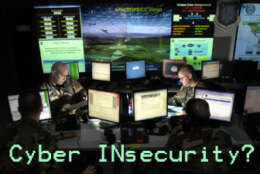Critical infrastructure
-
Congress heard criticisms of the White House\'s cybersecurity proposal Friday, including claims that it provides incentives that could make the nation\'s critical infrastructure less secure.
June 27, 2011 -
The House is preparing to once again take up legislation that would grant the Federal Energy Regulatory Commission new authority to order private electrical grid operators to take emergency action in the event of a cyber attack or a new vulnerability. The power would extend to bulk electric systems and parts of the grid that supply electricity to Defense infrastructure that is critical to national security.
June 01, 2011 -
The White House\'s draft bill includes many similarities with the one sponsored by the Sens. Lieberman, Collins and Carper. The biggest issues are around the President\'s powers over the Internet during emergencies and whether there should be a Senate-confirmed cyber coordinator at DHS. Senate Majority Leader Reid is making comprehensive cyber legislation a priority this session.
May 23, 2011 -
Even in a year in which the Stuxnet attack targeted critical infrastructure systems and attacks on grid operators rose dramatically, operators of critical infrastructure around the world took few steps to increase their cyber defenses, a new report found.
April 20, 2011 -
DHS is releasing gases and fluorescent particles into Boston\'s subway tunnels today to study how toxic chemicals and lethal biological agents could spread through the nation\'s oldest subway system in a terrorist attack. Details from program manager, Teresa Lustig
August 20, 2010 -
Some ex-employees turn to cybercrime
April 08, 2010


